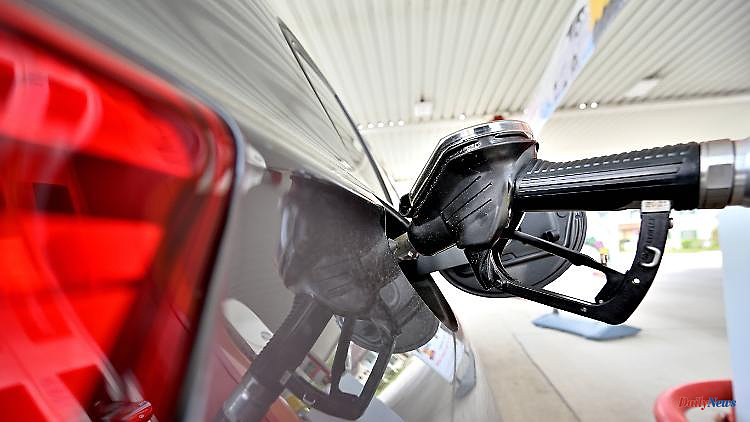The traffic light coalition wants to relieve motorists with a tank discount. But the tax cut is unlikely to reach consumers any time soon. There are mutliple reasons for this.
Anyone who drives to fill up on Wednesday should be surprised. The tank discount comes into effect, and the prices for petrol and diesel are expected to drop significantly - by around 35 cents and almost 17 cents respectively. But this price reduction should not have arrived at the vast majority of gas stations.
There are mutliple reasons for this. The background: starting in June, the federal government will reduce the energy tax on fuels to the minimum permitted in the EU. The measure is temporary and applies for three months. The tax rate for petrol will drop by almost 30 cents and for diesel by a good 14 cents. No value-added tax of 19 percent is due on this omitted amount. The total tax relief is 35.2 cents per liter of petrol and 16.7 cents per liter of diesel.
However, this tax is not only levied at the petrol pumps, but beforehand at refineries and tank farms. This means that petrol and diesel that were delivered to the filling stations before Wednesday were bought by the operators with the higher tax component. Operators now have to decide whether to sell the fuel cheaper because their customers expect it. But few of them are likely to be prepared to accept these losses.
In addition, even with the discount, the mechanism of supply and demand still applies. From June 1st, the demand for petrol and diesel is likely to suddenly increase sharply. The ADAC warns against driving the tank largely empty in order to then refuel as cheaply as possible in the middle and at the end of the week. The automobile club then expects long queues and waiting times. The petrol station industry fears a real rush and thinks bottlenecks are possible.
In addition, many gas station operators are likely to have reduced their inventories recently in order to have to resell as little more expensive fuel as possible after Wednesday. At the same time, it looks as if motorists are driving en masse to the petrol station. And when high demand meets low supply, prices rise.
"Then we lowered the price, but in reality it's going up," said Federal Minister of Economics Robert Habeck in an interview with ntv. This would then depend on what is happening on the market and would "calm down again." The general manager of the mineral oil association "Fuels und Energie", Christian Küchen, sees it similarly. "We assume that the energy tax cut will be passed on because of the intense competition between gas stations," he told the "Rheinische Post". However, there is no empirical value for a tax cut of this magnitude.
And then there are the mineral oil companies. The suspicion is that they pushed up the prices before the launch of the tank discount. The President of the Federal Cartel Office, Andreas Mundt, has already announced that his authority will keep a close eye on price developments after the start of the tank discount. The cartel office is "looking closely at June 1st," said in the ntv interview. If price reductions are not passed on to consumers, the Cartel Office will ask the oil companies "uncomfortable questions".
The energy tax is only one factor that determines the price of gasoline. So illegal price fixing is not the only explanation for rising fuel prices.
Furthermore, net income at the gas stations minus the price of crude oil cannot be equated with the profit margin of the refineries. Because their costs have risen sharply, for example for energy and for chemical products that are used in the manufacturing process.
It must also be taken into account that there is an international market for fuels in which prices are formed on the basis of supply and demand. It was shaken up by the Russian war of aggression against Ukraine and the sanctions imposed by the West. Much of the diesel sold in Germany and the rest of Europe was produced in Russian refineries. Some of these deliveries are now missing and cannot be replaced quickly. This contributes to rising prices on the world market - a development that can also be seen at German petrol stations.












